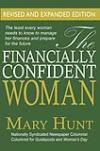Infidelity. It's not what you're thinking, although being sexually unfaithful to your spouse could certainly create one industrial-strength barrier to harmony in a relationship. Today, I want to talk about financial infidelity, which is the subject of many letters I receive, with more in recent months than in years past. Here's one:
Is there any hope for my situation? I have run up more than $75,000 of unsecured debt. My husband doesn't know and I will never be able to tell him. It takes my entire paycheck just to make the payments on this debt and it seems like I'm getting nowhere with it. What can I do? I don't want to file for bankruptcy, but I'm beginning to think that's my only way out. Please help me.
While not all financial infidelity is as serious as $75,000 of secret debt, money secrets between partners can grow into barriers of serious proportion. Money secrets destroy trust.
Here is my standard response to letters like this one, which, by the way, come as often from husbands as from wives:
Imagine for a moment that it's not you but your spouse who wrote to me. How would you want me to respond? Shall I tell him to just keep quiet and do the best he can so you never find out? Or would you want me to plead with him to confess with total remorse and a willingness to make things right?
No one has responded that they'd like me to advise their spouse to keep quiet. Just thinking about the situation in those terms helps the letter writer see what must be done.
Here are the steps I offer to anyone facing financial infidelity:
Acknowledge. Call this what it is: betrayal and deceit. This is serious.
Show remorse. Your spouse needs to know that you are truly, sincerely sorry for what you have done. You probably can't apologize often enough, making sure you do not include, "Yes, but ..." or any other attempts to justify it. True remorse says, "I was wrong, and I am sorry."
Understand. Remorse, necessary as it is, doesn't take away the pain, but it does put recovery in motion. Your spouse may need time to process and rebuild trust.
Promise change. If you can say you are now committed to total financial honesty, let your spouse know your plan.
Share details. Your spouse has every right to know the full extent of your financial indiscretions as well as your specific plans for recovery.
Offer reassurance. Even though you have decided to reform, your spouse may react for some time. Your first reassurance needs to be that the activity has stopped.
Commit yourself fully. One of the keys to financial harmony is mutual respect and accountability. Let your spouse know that you are 100 percent committed to debt-proof living.
Consider counseling. There are times when a spending problem signals something much deeper, like addiction or serious depression. This may be a wake-up call that moves you to address underlying issues.
Unresolved anger. Anger is not bad; it is an emotion that is a mask for hurt or fear. Anger is a normal response to an unsatisfied hunger. Talking it out, praying and confronting the issues behind the anger are the ways to dissolve it.
Spouses expect to trust each other financially, sexually and emotionally. Stealing and dishonesty are things they need to watch for in the outside world, but not within this intimate arrangement known as marriage.
Whenever a couple's "trust account" is violated (one or the other makes a big "withdrawal"), the choice is to either resolve the issue or let it grow into a major barrier. Layer upon layer of broken trust can push spouses far apart and do terrible damage to their marriage.
No matter the barrier, if it is standing in the way of an open and deeply honest marriage, you need to bring it out into the open. Then, you need to begin a demolition party.
Published April 25, 2009
©Copyright 2009 Mary Hunt. Everyday Cheapskate is a Registered Trademark. All rights reserved. Permission to reprint required.
 Check out Mary's recently released revised and expanded edition of The Financially Confident Woman (DPL Press, 2008).
Check out Mary's recently released revised and expanded edition of The Financially Confident Woman (DPL Press, 2008).
Debt-Proof Living was founded in 1992 by Mary Hunt. What began as a newsletter to encourage and empower people to break free from the bondage of consumer debt has grown into a huge community of ordinary people who have achieved remarkable success in their quest to effectively manage their money and stay out of debt. Today, "Debt-Proof Living" is read by close to 100,000 cheapskates. Click here to subscribe. Also, you can receive Mary's free daily e-mail "Everyday Cheapskate" by signing up at EverydayCheapskate.com.